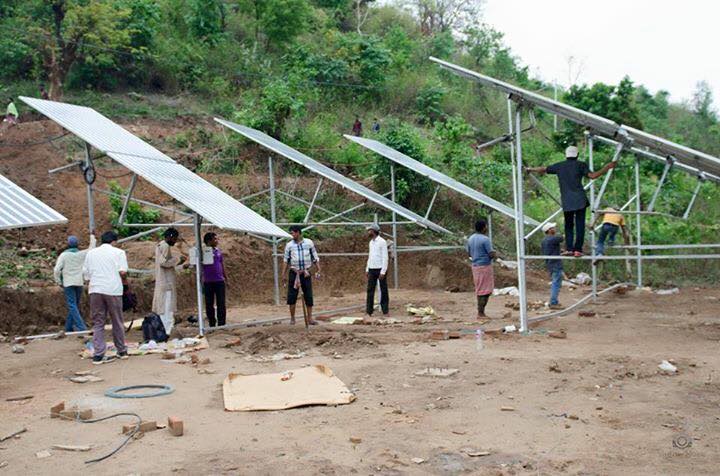Developers Defy the DCR Norms
India has set an aggressive target to achieve 100 GW of solar power installation by 2022. Though the country is witnessing a significant traction in this account, it still has a long way to go. The Indian government is also pushing this hard because it aims to provide power to the whole nation.
India is a growing nation with increasing population and demand for power. India has deployed $11 billion rural electrification program, called Deen Dayal Upadhyaya Gram Jyoti Yojana, which targets delivering power to 18,452 villages by 2018.
Also, read about Microgrids in India.
Many rural parts of India still live in darkness or use life-threatening fossil fuel-based lighting sources like kerosene lamps to fulfill their power needs. Therefore, the country is aiming at solarizing the nation which could not only eliminate the need for these kerosene lamps but also reach parts of the country where there is no grid connection.
Most of the solar panels and other equipment that is used in India are imported from China either legally or illegally. The government is constantly pushing Domestic Content Requirement or DCR policy (only Indian made solar cells and modules should be used) to encourage manufacturing in India as per the Make in India policy. However, it has been noticed that many solar developers are still using Chinese panels, even for projects awarded on the basis that they would only use locally made solar cells and modules. Not only that, even the Chinese panels which have been rejected are being sold in the domestic market at a discount.
The government will now make it mandatory for developers to disclose the radio-frequency identification (RFID) tag information of the panels used in solar projects publicly. The RFID list of rejected panels will also need to be disclosed.
The government is promoting solar energy in India by announcing DCR policy and subsidies at various levels, it is indeed very encouraging to see it step out and take actions against malpractices happening at the ground level. India is a huge country with never-ending demands for basic necessities like clean water, power, jobs etc. The government is now trying to put things right by announcing the Make in India policy to encourage local manufacturing and jobs. However, it is disheartening to notice the acts of these solar developers who intend to profit out of a social cause.
Other cases where discrepancy has been/ can be noted are – government subsidy is availed multiple times on the same set of panels at multiple locations, or someone may put a panel on a rooftop and claim subsidy and then remove it and put it on another rooftop to claim the subsidy.
The government has still to quantify the penalty on such developers who defy norms.
Google+“The entire policy faces a risk when companies start flouting the existing rules which are there to promote domestic manufacturing and local jobs. It’s basically kind of profiteering out of a policy custom made for local jobs and it’s very important that the investigation is carried out in a time-bound manner and suitable action is taken against the people who are doing such activities,” said Ketan Mehta, managing director and chief executive of Rays Power Infra, a solar project developer.
Source: LiveMint



